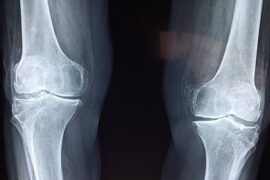Are you a victim of a misdiagnosis? Wondering if you can hold the doctor accountable for their error? Pursuing legal action is a big decision to make, and it would require you to have a clear understanding of the merits of your case.
Cancer misdiagnosis, unfortunately, is one of the leading causes of medical malpractice claims, with various types of cancers, including those affecting the foot, where one of the common types of foot cancers is prone to misdiagnosis. Diagnosing cancer is inherently complex. Different cancers have varied presentations, symptoms, and diagnostic challenges.
Diagnosing cancers in less common areas, coupled with the need for specialized knowledge and awareness, makes them susceptible to misdiagnoses. Healthcare providers may have lower awareness of these conditions, making it a challenge to recognize and diagnose them accurately.
But before you jump to conclusions, you have to understand the elements that make a strong misdiagnosis lawsuit. From the challenges of proving medical malpractice to gathering evidence that supports your case, we will walk you through the ins and outs of suing the doctor who misdiagnosed you.
Elements Of A Valid Misdiagnosis Lawsuit
Filing a valid misdiagnosis lawsuit involves demonstrating specific elements that can establish the foundation of your case. Here are some key aspects you may need to show:
- You need to prove that there was a doctor-patient relationship. This means you must show that you sought medical treatment from the doctor and that the doctor agreed to provide you with care. Without this relationship, it will be challenging to establish liability.
- You must establish that the doctor was negligent in their diagnosis. This requires demonstrating that the doctor failed to provide the standard level of care that another competent doctor would have provided in a similar situation. You can demonstrate this by presenting expert testimony or medical records that back up your claim.
- You must prove that the misdiagnosis caused you harm. This can be done by showing that the misdiagnosis resulted in delayed or incorrect treatment, leading to worsening health conditions or additional medical expenses.
- You must demonstrate that you suffered damage as a result of being misdiagnosed. This could include physical pain, emotional distress, lost wages, or other financial losses.
Each misdiagnosis case is unique, and the specifics may vary based on the circumstances. But how much can you sue a hospital for negligence? While there is no fixed or specific amount for a hospital negligence lawsuit, the amount can vary by jurisdiction. Consulting with a knowledgeable attorney can help you assess the merits of your case, determine the elements that apply, and guide you through the legal process.
Challenges In Proving Medical Malpractice
Establishing a valid misdiagnosis lawsuit can be challenging due to the complexities involved in proving medical malpractice. When it comes to medical malpractice cases, proving negligence on the part of the doctor is important, and it can be difficult to establish that the doctor’s actions or lack thereof directly caused harm to the patient. To successfully prove medical malpractice, you must demonstrate four key elements: duty of care, breach of duty, causation, and damages.
- You must show that the doctor must provide a certain standard of care to the patient.
- You need to prove that the doctor breached this duty by failing to meet the required standard of care. This can be challenging, as it often requires expert testimony to establish what the standard of care should have been.
- You must establish a direct link between the doctor’s breach of duty and the harm suffered by the patient. This requires proving that the misdiagnosis directly caused or significantly contributed to the patient’s worsened condition or injury.
- You must demonstrate the damages or losses that resulted from being misdiagnosed, such as physical pain, emotional distress, medical expenses, or loss of income.
Gathering Evidence For Your Misdiagnosis Case
When gathering evidence for your misdiagnosis case, all relevant medical records and documents have to be collected. These records will provide crucial information about your medical history, the tests and procedures you underwent, and the doctor’s notes and observations.
Start by requesting copies of your complete medical records from all healthcare providers involved in your care. This includes not only your primary care physician but also any specialists, hospitals, or clinics you visited. Make sure to obtain records for the specific period in question, as well as any relevant previous medical history that may be relevant to your case.
Aside from medical records, any other relevant documents also matter. This could include any lab test results, imaging scans, or pathology reports that were conducted during your diagnosis. These documents can help establish whether proper tests were conducted and interpreted correctly.
If you have any personal notes or diaries documenting your symptoms, concerns, or interactions with your healthcare providers, gather those as well. These can serve as valuable pieces of evidence to support your case.
Overcoming Obstacles In Misdiagnosis Lawsuits
Overcoming obstacles in misdiagnosis lawsuits can be challenging, but with the right approach and evidence, you can strengthen your case and increase your chances of a successful outcome. Here are some examples of the obstacles you may encounter:
- You need to prove that the doctor’s misdiagnosis caused you harm. This can be difficult because medical conditions are complex, and establishing a direct link between the misdiagnosis and your injury or worsened condition may require expert testimony.
- The doctor’s defense of using reasonable care and skill in making the diagnosis. To counter this, you must demonstrate that the doctor failed to meet the accepted standard of care. This can be done by presenting evidence such as medical records, expert opinions, and testimony from other healthcare professionals.
- Establishing the exact damages you suffered as a result of the misdiagnosis. It’s important to gather all relevant medical records, bills, and other documentation that can support your claim for compensatory damages, including medical expenses, lost wages, and pain and suffering.
- The legal process itself. The complexity of misdiagnosis lawsuits would require you to hire an experienced attorney specializing in medical malpractice to guide you throughout the lawsuit, from the evaluation of your case to securing compensation.
Potential Compensation For Misdiagnosis Victims
Victims who have been misdiagnosed may be eligible for potential compensation to help alleviate their financial burdens and provide justice for their suffering. You might be eligible to seek compensation for the harm caused if a doctor misdiagnoses you. Compensation can help cover medical expenses, lost wages, pain and suffering, and other damages resulting from the misdiagnosis. A qualified attorney who specializes in medical malpractice cases will determine the strength of your claim and guide you throughout the legal process.
The amount of compensation you may receive will depend on various factors, such as the severity of the misdiagnosis, the impact on your health and quality of life, and the economic losses you have suffered. In some cases, victims have been awarded significant monetary settlements to compensate for their physical and emotional pain, ongoing medical treatment, and financial hardships.
To pursue a successful compensation claim, you’ll need to gather evidence that supports your case. This may include medical records, expert opinions, testimonies from other healthcare professionals, and any relevant documentation that demonstrates the negligence or incompetence of the doctor who misdiagnosed you.
Conclusion
If a doctor misdiagnosed you, you might be able to sue for medical malpractice, but it can be difficult to prove a misdiagnosis case. It will require strong evidence for you to overcome obstacles. You have to gather all relevant documentation to support your claims and seek the guidance of a skilled attorney. If you are successful, you might be eligible for compensation for the harm the incorrect diagnosis caused.


































